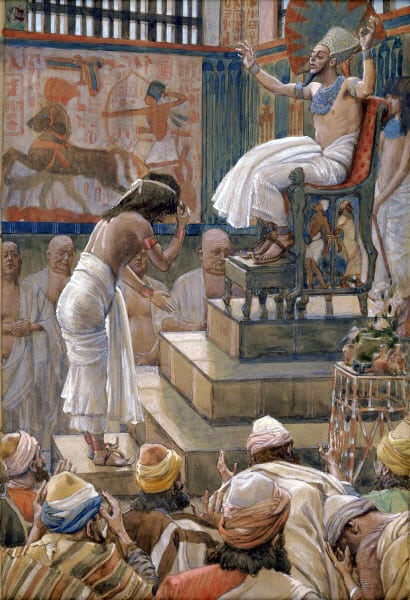In just two places in the Bible do four centuries pass between Bible books positioned next to each other. One of these is between Malachi and Matthew—between the Old Testament and the New Testament. The other is between Genesis and Exodus.
Exodus 1:8 is a significant verse. It says, “A new king, who had not known Joseph, came to power in Egypt.” Subsequent verses immediately begin to reveal the consequences of this Pharaoh’s lack of familiarity with and appreciation for the one who had saved his country and surrounding nations from ruin during the devastating seven-year period of famine: “He [Pharaoh] said to his people, ‘Look, the Israelite people are more numerous and powerful than we are. Let us deal shrewdly with them; otherwise they will multiply further, and if war breaks out, they may join our enemies, fight against us, and leave the country.’ So the Egyptians assigned taskmasters over the Israelites to oppress them with forced labor” (vv. 9-10).
Just how affirming and appreciative of Joseph had been the Pharaoh who promoted him from prison to palace, making him second-in-command in all of Egypt? These verses provide insight.
- After Joseph correctly interpreted Pharaoh’s dreams foretelling seven years of plentiful harvests and seven years of famine, Joseph recommended that Pharaoh appoint an administrator to prepare for the time of want during the time of plenty. Pharaoh responded wisely to Joseph’s proposal. It “pleased Pharaoh and all his servants. Then Pharaoh said to his servants, ‘Can we find anyone like this, a man who has God’s spirit in him?’” (Gen. 41:37-38; see also vv. 39-45).
- Genesis 41:55-57 says, “Extreme hunger came to all the land of Egypt, and the people cried out to Pharaoh for food. Pharaoh told all Egypt, ‘Go to Joseph and do whatever he tells you.’ Because the famine had spread across the whole country, Joseph opened up all the storehouses and sold grain to the Egyptians, for the famine was severe in the land of Egypt. Every nation came to Joseph in Egypt to buy grain, for the famine was severe in every land.”
- It is clear in chapters 42-50 of Genesis that Joseph did indeed have unchallenged authority in Egypt, for his commands apparently were obeyed immediately and without question.
- When Joseph’s family arrived in Egypt, Pharaoh welcomed them (see Gen. 45:16-20; 47:5-12).
Pharaoh Welcomes Joseph’s Family
- When Jacob died, Pharaoh affirmed Joseph’s intention to bury his father in accordance with the oath he—Joseph—had made (see Gen. 50:6-14).
- When Joseph died, his body was embalmed and “placed…in a coffin in Egypt” (Gen. 50:26).
Georg Wilhelm Friedrich Hegel (1770-1831) observed, “We learn from history that we do not learn from history.” This is but one of the lessons found in the decisions made by the Pharaoh who came to power four centuries after Joseph. Not only did he “know not Joseph,” but he also didn’t care to know or appreciate him. Can you think of ways we can work to avoid his unwise and foolish example?
Copyright © 2017 by B. Nathaniel Sullivan. All rights reserved.
Unless otherwise noted, all Scripture quotations in this article have been taken from the Holman Christian Standard Bible®, Copyright © 1999, 2000, 2002, 2003, 2009 by Holman Bible Publishers. Used by permission. Holman Christian Standard Bible®, Holman CSB®, and HCSB® are federally registered trademarks of Holman Bible Publishers.
